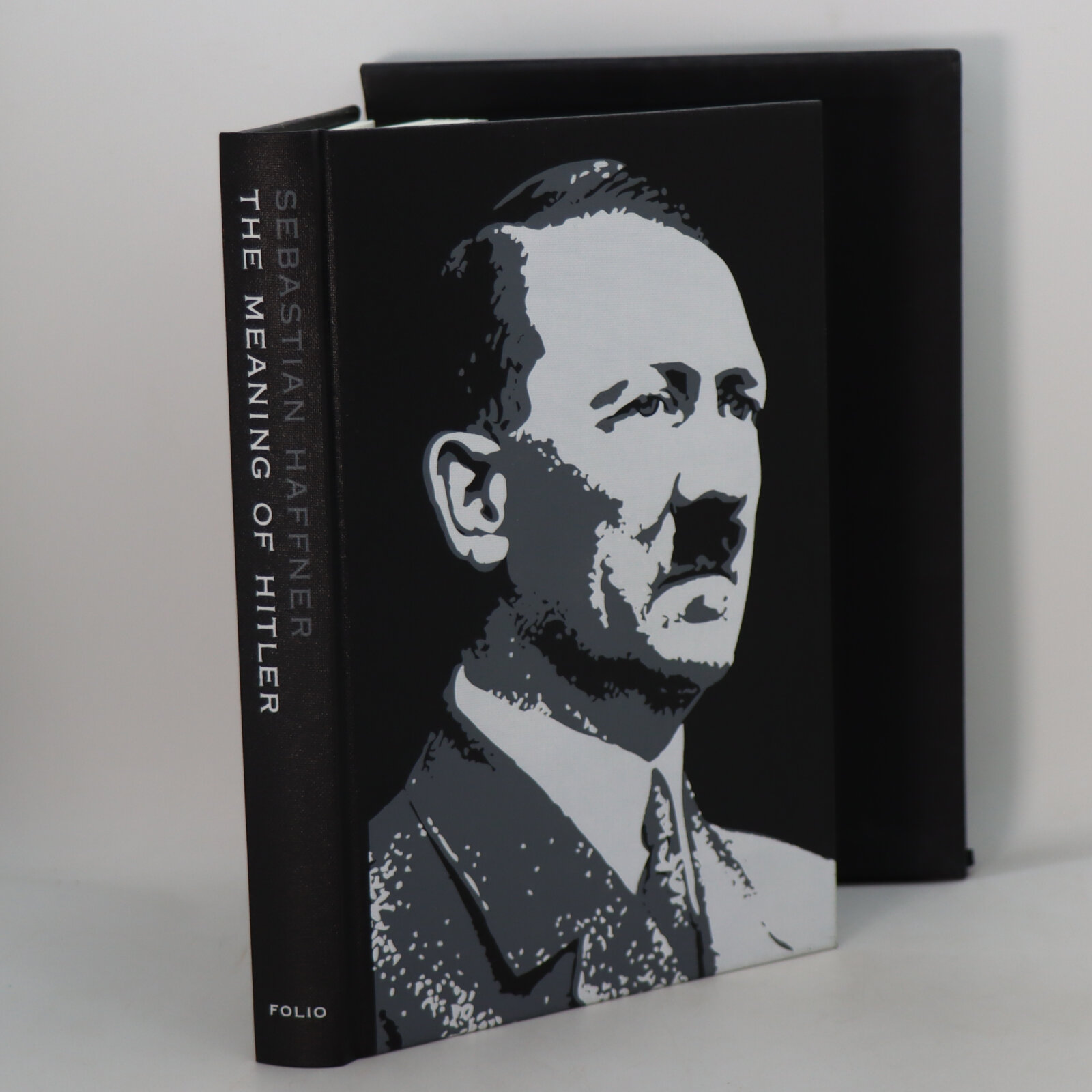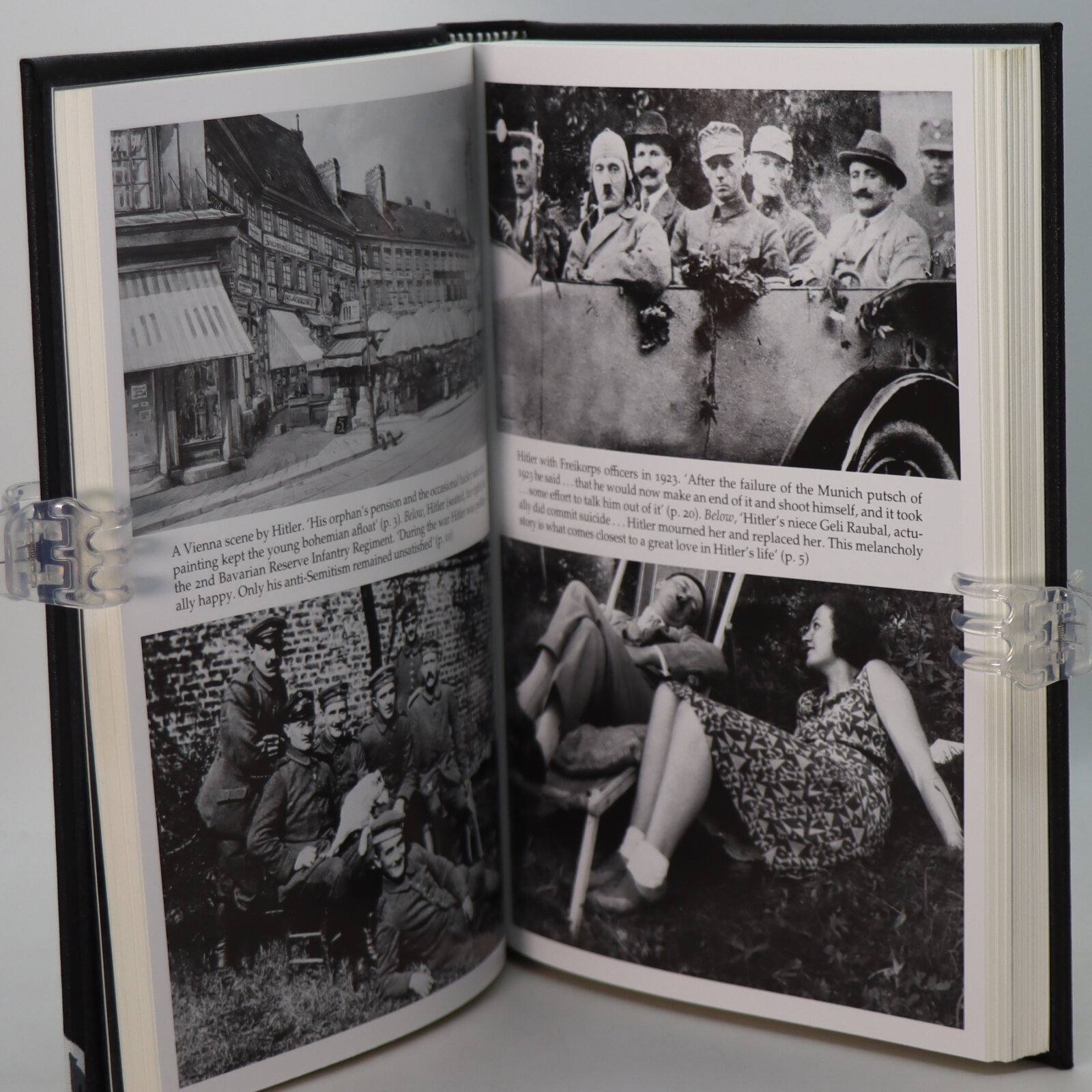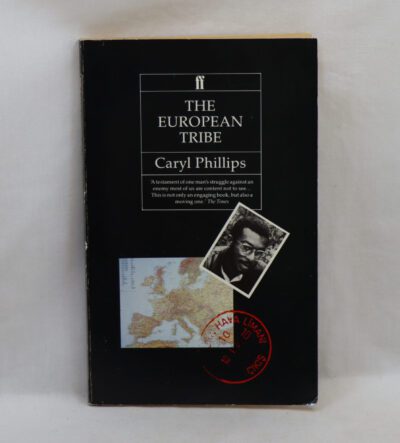The Meaning of Hitler.
By Sebastian Haffner
ISBN: 9780753808986
Printed: 2011
Publisher: THe Folio Society. London
| Dimensions | 17 × 24 × 3 cm |
|---|---|
| Language |
Language: English
Size (cminches): 17 x 24 x 3
Condition: Fine (See explanation of ratings)
Item information
Description
In a fitted box. Black cloth binding with white title. Image of Hitler on the front board.
F.B.A. provides an in-depth photographic presentation of this item to stimulate your feeling and touch. More traditional book descriptions are immediately available
Endorsed by F.B.A. – F.B.A. is endorsing a range of collectable lovingly used books
A thinking man’s book
The Meaning of Hitler (German: Anmerkungen zu Hitler) is a 1978 book by the journalist and writer Raimund Pretzel, who published all his books under the pseudonym Sebastian Haffner. Journalist and military historian Sir Max Hastings called it ‘among the best’ studies of Hitler; Edward Crankshaw called it a ‘quite dazzlingly brilliant analysis’.
The book analyses the life and work of Adolf Hitler and is divided into seven chapters, each treating a different aspect of the man.
The book was a best-seller in Germany and was awarded the Heinrich Heine Prize of the city of Dusseldorf, the Johann Heinrich Merck Prize, the Friedrich Schiedel Literature Prize and, posthumously in 2003, the Wingate Literary Prize. Golo Mann called it a ‘witty, original and clarifying book… excellently suited for discussion in the upper classes of schools’. For Dieter Wunderlich the book is a ‘linguistic masterpiece… not a biography but a concentrated reflection’ by a ‘wise and original’ author.
The book is divided into sections, each of which explores a different aspect of Hitler’s life, personality and actions, which Haffner analyses.
Life
According to Sebastian Haffner, whereas Hitler’s father made a modest success of life, Hitler, uniquely, failed drastically, then succeeded, then failed again. His life lacked education, occupation, love, friendship, marriage, parenthood. A readiness for suicide, of Geli Raubal, Eva Braun and himself, accompanied his career. All soft, lovable traits were missing from his character. He was also full of himself and unselfcritical. Hitler was an ’empty man’ who filled himself with pride and hatred.
Achievements
Haffner argues that on gaining office in 1933, Hitler achieved many ‘miracles’ in economic and military policy. 90% of Germans approved. Had he died in 1938, he would have been remembered as ‘one of the greatest Germans ever’. Few people noticed that he had dismantled the state and concealed the resultant chaos. In the long run, his achievement came to nothing.
Successes
Haffner states that all Hitler’s foreign policy successes up to 1939 were gained without bloodshed. From then until 1941, he was also a successful war leader. His attack on Russia began his decline, and the pattern of failure, success, then failure again, is unique in history.
Misconceptions
Hitler, who believed in the constant Darwinian struggle for power between nations, turned the German state into a war machine, according to Haffner. For Hitler, the emergency was the norm. The Jews, being internationalists, took no part in this struggle between nations and had to be eliminated in a ‘murder of the helpless’.
Mistakes
Hitler achieved the exact opposite of his stated goals, according to Sebastian Haffner. Germany did not become great but was occupied and divided. The Jews were not eliminated but created their own state. Communism was not defeated; instead, hegemony passed from Europe to the US and the USSR. European colonial empires dissolved: ‘Today’s world, whether we like it or not, is the work of Hitler.’
When Germany failed to meet his expectations for conquest, Hitler wished it to be annihilated.
Crimes
Haffner asserts that Hitler was a criminal who killed millions for his own gratification. He does not stand with Alexander or Napoleon but with Crippen or Christie. His victims included invalids, Roma, Poles, Russians, and Jews. In December 1941 he abandoned the goal of world conquest in favour of the Final solution–exterminating the Jews.
Betrayal
From October 1944, Hitler deliberately prolonged the war by eliminating moderate opposition within Germany, in Haffner’s opinion. In doing so he betrayed the German people and his ‘fight to the finish’ created a ‘stirring legend’ but destroyed Germany as a unified nation. The Ardennes offensive allowed the Russians to take Berlin, allowing Russia the upper hand in postwar Europe. Hitler said, ‘the future belongs exclusively to the stronger nation from the east.’
One of the effects of this, Haffner claims, is that after Hitler, Germans no longer dare to be patriots, not knowing how much precisely this anti-patriotism is fulfilment of Hitler’s last wish.
Want to know more about this item?

Share this Page with a friend











